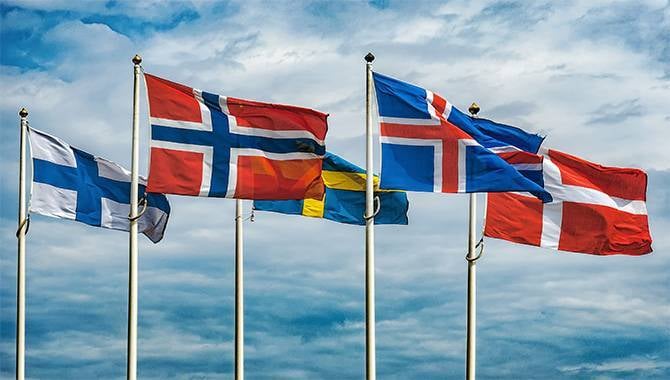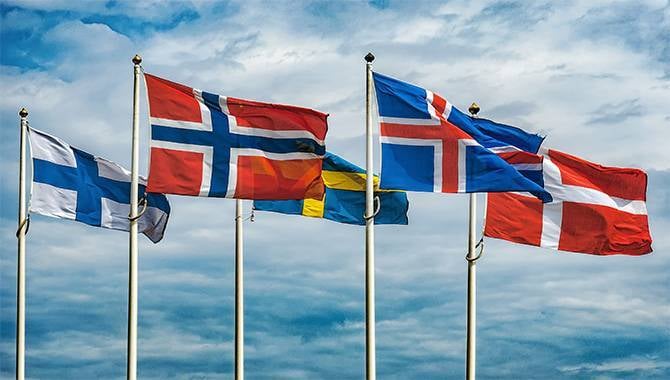
Henrik Norsk Hoffmann, Partner at Nordic Gambling, moderated the debate and focused on the re-regulation of the Swedish market as well as the monopolised status of the Finnish gaming market.
Invited to speak on the panel was Maarten Haijer, Secretary General, European Gaming and Betting Association; Fredrik Wastenson, CEO, Svenska Spel Sport and Casino; Jari Vahanen, SVP International Affairs, Veikkaus; Gustaf Hoffstedt, Director General, Bos.nu.
HF: Sweden opened its gaming market in January this year. It’s an acclaimed success with channelisation rates of 91%. How much of a success has it been and will it now function as a role model for other countries and markets looking to do the same?
FW: The objective of opening the Swedish market was to regain control and to increase consumer protection. So I think there is a check in the box of consumer protection, it has improved due to new regulations. Another objective was of course, channelisation – to make sure that we have more than 90% of companies following the law. Last week, the gambling authority claimed the p is 91%. It is still to be discussed whether that is true or not. If it is true, that is proof of success. It’s still a little bit early to evaluate whether opening the market has been a success or not.
GH: I think everyone should be concerned about the channelisation rates, not just the commercial operators but also the government and elected MPs. Without successful channelisation you cannot reach any other goal. You cannot reach income to the state and you cannot be successful in responsible gambling measures should you fail with channelisation. One should bear in mind that prior to the re-regulation the channelisation of online gambling in Sweden was actually below 50%. So it came as no surprise that the MPs of Sweden finally understood there needed to be a change.
However, the Swedish Gambling Authority presented channelisation ps the other week, claiming 91% of the market is made up of licensed operators. We are not sure of the validity of these, but it is worth bearing in mind that even if these ps are true, it is still a general statement without any specific verticals. For example, it includes betting on trotting, a very popular vertical. In this vertical there is, in practice, a monopoly operator in ATG, which probably holds 99% of that market. The channelling of that market is extremely high. When the overall channelling is 91%, it logically means that some other verticals are suffering with channelisation, mainly sports betting and online casino. It has only been nine months since the market re-regulated but I do believe we are already suffering from a governmental failure in those verticals. It may get worse before it gets better.
JV: In Finland we have a monopoly in principal but it does not work out that way in practice. We have a complete monopoly over retail so there are no bad operators there at all. According to Finnish law, it’s legal for customers to use services and games of other companies. The only thing which is not allowed from offshore companies is marketing. In the digital channel we have about two-thirds of the market in games, but with online casino and sports betting it’s closer to a 50-50 split. So there is no monopoly in practice.
HF: Does that mean you would prefer a system more similar to those in Denmark and Sweden?
JV: At the moment the customers are happy because they have many options, in spite of the monopoly. As long as things continue as they are, there is no reason for politicians to change the legal system.
HF: Fredrik, do you miss the times of monopoly in Sweden?
FW: I do not miss those times at all; we were actually competing with unfair conditions. We could not, for example, offer the same prices on sports betting as our offshore competitors. For us, there were two options; either have a more strict monopoly or liberalise the market. The decision was made and I think it was the right one.
Now it’s very much about governing the market to ensure that we have a high degree of channelisation. We have an industry image problem at the moment, that’s due to several factors. Public opinion thought there would be less marketing following the re-regulation, but of course everyone in the business understood the opposite would be true. With new entrants and companies paying a fee to operate legally, there would be a high degree of marketing, especially in the first year. This led to a debate in Swedish media that has affected the industry.
HF: The image problem is not just a Swedish phenomenon; there are similar problems in Denmark for example. So what can the industry do to change this?
FW: We as an industry, to start with, have to come together. At the moment we are just fighting each other and that’s not good for the industry. We will fuel the debate by making claims against our competitors. We can see parallels from other industries where they had image problems and if they didn’t come together they wouldn’t have survived.
GH: It sounds very tempting to come together, who doesn’t want to do that? One extremely important measure to be able to come together is that Sweden can construct a market that offers a level playing field. It’s not that easy to come together when, for example, 60 to 70 license holders come to one conclusion on extremely important policy issues and one operator, the state operator, comes to a completely opposite conclusion. That wouldn’t have been a problem if that operator wasn’t of such large proportions.
In one case, the state-owned operator advocates for prohibiting marketing of online casinos. I can understand why it’s doing that, online casinos are an important part of its business, but it’s not the most important. They can also use the same logo type that is used in both the competitive markets and monopolised market. So they can still effectively advertise. Operators that only work in the online casino space would then be completely prohibited from advertising.
HF: Martin, it sounds like they could use some help from the EGBA with this. What are you actively doing to improve the image of the industry?
MH: I do agree that we have an obvious image issue; people don’t like gambling at the moment. We are not very well organised as an industry, there are a lot of competing operators and lots of major issues. In the long term it will be hugely detrimental if we don’t organise better.
These issues will not go away and pressure from responsible gambling measures will only increase. This is not easily solved by one organisation. We can look at the UK to see how things can develop. We are trying to organise the industry and prevent this from happening.



